Baking Soda for Hard Water: Are you tired of battling stubborn stains on your shower doors, lackluster laundry, and plants that just don’t seem to thrive, no matter how much you care for them? I know I was! The culprit might be lurking right in your pipes: hard water. For centuries, communities have struggled with the challenges posed by water rich in minerals like calcium and magnesium. From ancient Roman aqueducts plagued by mineral buildup to modern-day households battling soap scum, hard water has been a persistent problem.
But fear not, fellow gardeners and DIY enthusiasts! There’s a simple, affordable, and surprisingly effective solution sitting in your pantry: baking soda. This humble ingredient, a staple in kitchens worldwide, can be a game-changer when it comes to mitigating the effects of hard water, especially when you’re trying to nurture your garden.
Why is this DIY trick so essential? Hard water can wreak havoc on your plants, hindering their ability to absorb essential nutrients from the soil. It can also leave unsightly deposits on your gardening tools and even affect the pH balance of your soil. By learning how to use baking soda for hard water, you can protect your plants, improve your gardening success, and save money on expensive water softening systems. Let’s dive into some easy and effective ways to harness the power of baking soda and transform your hard water woes into gardening wins!
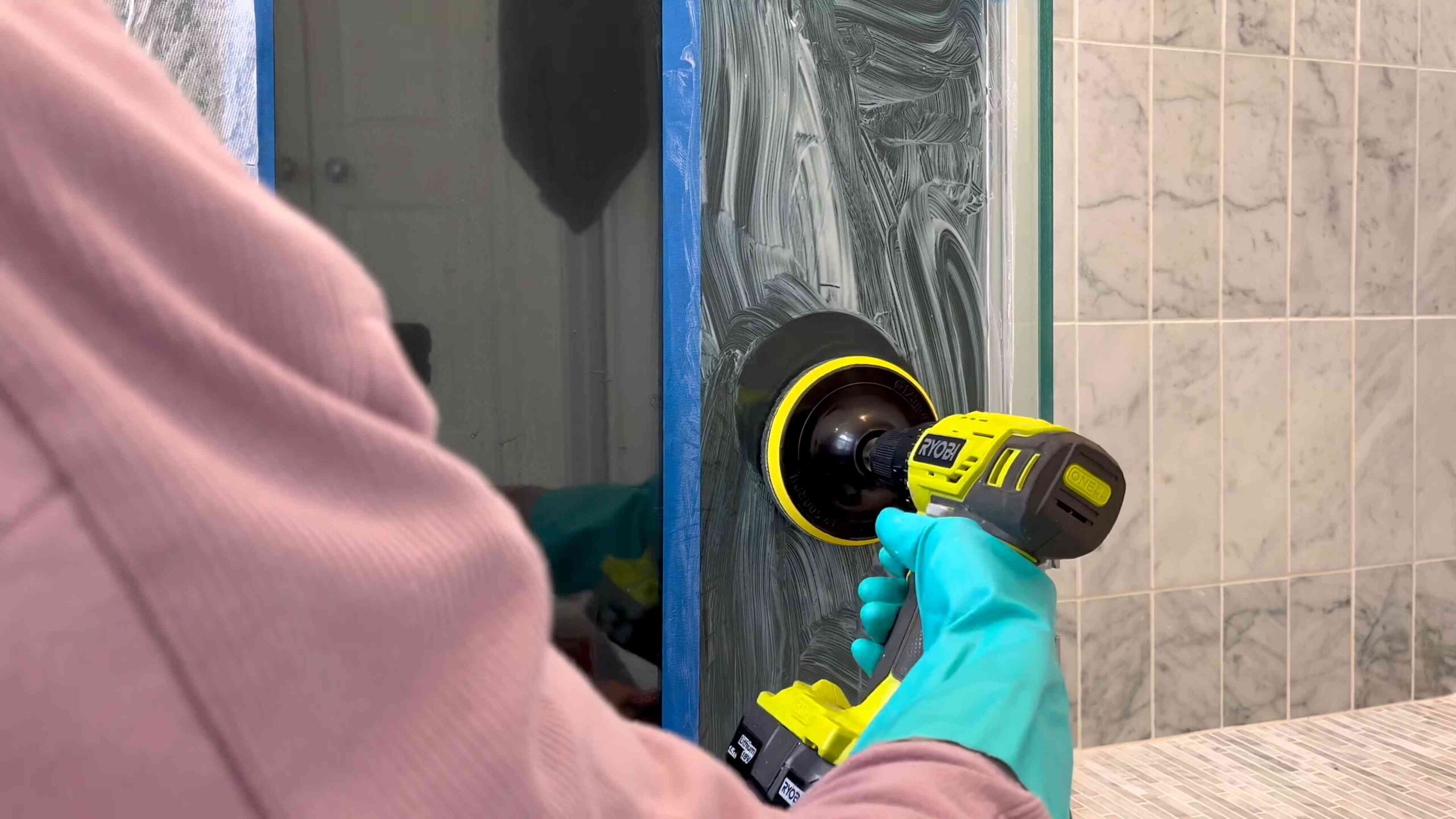
DIY Water Softening with Baking Soda: A Budget-Friendly Guide
Hey there, fellow DIY enthusiasts! Tired of that stubborn hard water leaving your skin feeling dry, your hair looking dull, and your appliances covered in limescale? I totally get it! While a whole-house water softener is a fantastic solution, it can be a significant investment. So, I’m here to share a simple, budget-friendly hack using something you probably already have in your pantry: baking soda!
Now, let’s be clear: baking soda won’t completely eliminate hard water minerals like a traditional softener. But it can significantly reduce their effects, making your water feel softer and improving your cleaning power. Think of it as a gentle nudge in the right direction!
Understanding Hard Water and Baking Soda
Before we dive in, let’s quickly understand why this works. Hard water contains high levels of minerals like calcium and magnesium. Baking soda (sodium bicarbonate) reacts with these minerals, helping to neutralize them and prevent them from forming stubborn deposits. It essentially makes the water less “hard” and more effective for cleaning and personal care.
The Baking Soda Bath Boost
This is my go-to method for a more luxurious and skin-friendly bath. Hard water can really dry out your skin, so this simple addition makes a world of difference.
What you’ll need:
* Baking soda
* Measuring cup
Step-by-step instructions:
1. Fill your tub: Start filling your bathtub with warm water, just like you normally would.
2. Add the baking soda: While the water is running, add about ½ to 1 cup of baking soda to the tub. The amount you use will depend on how hard your water is. I usually start with ½ cup and adjust from there. If you know your water is extremely hard, you might want to go closer to the 1 cup mark.
3. Swirl it around: Use your hand or foot to swirl the water around and help the baking soda dissolve completely. You don’t want any gritty residue at the bottom of the tub!
4. Soak and relax: Get in and enjoy your bath! You should notice that the water feels a bit softer and less harsh on your skin. I usually soak for at least 20 minutes to really let the baking soda do its thing.
5. Rinse off (optional): After your bath, you can rinse off with clean water if you feel like it, but it’s not always necessary. I usually just pat myself dry.
Boosting Laundry Performance with Baking Soda
Hard water can make it difficult for detergents to lather and clean effectively, leaving your clothes feeling stiff and dingy. Adding baking soda to your laundry can help boost the cleaning power of your detergent and leave your clothes feeling softer and brighter.
What you’ll need:
* Baking soda
* Laundry detergent
* Washing machine
Step-by-step instructions:
1. Load your washing machine: Load your washing machine with your clothes as usual.
2. Add baking soda to the drum: Before adding your detergent, sprinkle about ½ cup of baking soda directly into the drum of your washing machine.
3. Add detergent: Add your regular laundry detergent according to the manufacturer’s instructions. You might even be able to use a little less detergent than usual, since the baking soda will help boost its cleaning power.
4. Start the wash cycle: Start your washing machine on the appropriate cycle for your clothes.
5. Enjoy softer, brighter clothes: Once the wash cycle is complete, you should notice that your clothes feel softer and cleaner than usual.
Dishwashing Delight: Baking Soda for Sparkling Dishes
Hard water can leave spots and streaks on your dishes, making them look dull and unclean. Adding baking soda to your dishwasher can help prevent these spots and streaks, leaving your dishes sparkling clean.
What you’ll need:
* Baking soda
* Dishwasher detergent
* Dishwasher
Step-by-step instructions:
1. Load your dishwasher: Load your dishwasher with your dishes as usual.
2. Add baking soda to the dishwasher: Before adding your detergent, sprinkle about 1 tablespoon of baking soda into the bottom of your dishwasher. You can also add it to the detergent dispenser along with your detergent.
3. Add detergent: Add your regular dishwasher detergent according to the manufacturer’s instructions.
4. Start the dishwasher: Start your dishwasher on the appropriate cycle for your dishes.
5. Enjoy sparkling clean dishes: Once the dishwasher cycle is complete, you should notice that your dishes are sparkling clean and free of spots and streaks.
Cleaning Fixtures and Removing Hard Water Stains
Hard water stains are the bane of my existence! They seem to appear everywhere – on faucets, showerheads, and even inside toilets. Baking soda can be a surprisingly effective and gentle cleaner for removing these unsightly stains.
What you’ll need:
* Baking soda
* Water
* Spray bottle (optional)
* Sponge or cloth
* Old toothbrush (for stubborn stains)
Step-by-step instructions:
1. Make a baking soda paste: In a small bowl, mix baking soda with enough water to form a thick paste. The consistency should be similar to toothpaste.
2. Apply the paste to the stains: Apply the baking soda paste directly to the hard water stains. You can use your fingers, a sponge, or a cloth to apply it.
3. Let it sit: Allow the paste to sit on the stains for at least 15-20 minutes. For really stubborn stains, you can let it sit for even longer, up to an hour.
4. Scrub gently: After the paste has had time to sit, scrub the stains gently with a sponge, cloth, or old toothbrush. The baking soda acts as a mild abrasive, helping to loosen the mineral deposits.
5. Rinse thoroughly: Rinse the area thoroughly with clean water to remove the baking soda paste and any loosened mineral deposits.
6. Repeat if necessary: If the stains are particularly stubborn, you may need to repeat the process a few times.
7. For showerheads and faucets: For showerheads and faucets, you can also try soaking them in a solution of baking soda and water. Remove the showerhead or faucet aerator and soak it in a bowl of baking soda and water for a few hours, or even overnight. Then, scrub it with a toothbrush and rinse thoroughly.
8. For toilets: Sprinkle about a cup of baking soda into the toilet bowl and let it sit for at least an hour, or even overnight. Then, scrub the bowl with a toilet brush and flush.
A Word of Caution
While baking soda is generally safe and gentle, there are a few things to keep in mind:
* Don’t use it on delicate surfaces: Avoid using baking soda on delicate surfaces like gold, silver, or certain types of stone, as it can scratch them.
* Test in an inconspicuous area: Before using baking soda on a large area, test it in an inconspicuous area first to make sure it doesn’t damage the surface.
* Don’t mix with vinegar in a closed container: Mixing baking soda and vinegar creates carbon dioxide gas, which can build up pressure in a closed container and cause it to explode. While this reaction is great for science experiments, it’s not ideal for cleaning!
* Not a replacement for a water softener: Remember, baking soda is not a replacement for a water softener. It can help reduce the effects of hard water, but it won’t completely eliminate the minerals. If you have extremely hard water, you may still need to consider a traditional water softener.
Adjusting the Amount of Baking Soda
The amount of baking soda you need will depend on the hardness of your water. If you’re not sure how hard your water is, you can purchase a water hardness test kit at most hardware stores or online. These kits are relatively inexpensive and easy to use.
As a general guideline, start with the recommended amount of baking soda and adjust as needed. If you’re not seeing the desired results, you can try adding a little more baking soda. Just be careful not to add too much, as it can leave a powdery residue.
Other Benefits of Using Baking Soda
Besides softening water, baking soda has a number of other benefits:
* It’s a natural deodorizer: Baking soda can help absorb odors, making it a great addition to your laundry or dishwasher.
* It’s a mild abrasive: Baking soda can help scrub away dirt and grime without scratching surfaces.
* It’s environmentally friendly: Baking soda is a natural and biodegradable product, making it a more sustainable alternative to harsh chemical cleaners.
* It’s inexpensive: Baking soda is very affordable, making it a budget-friendly way to improve your water quality and cleaning power.
Final Thoughts
So, there you have it! A simple and affordable way to combat the effects
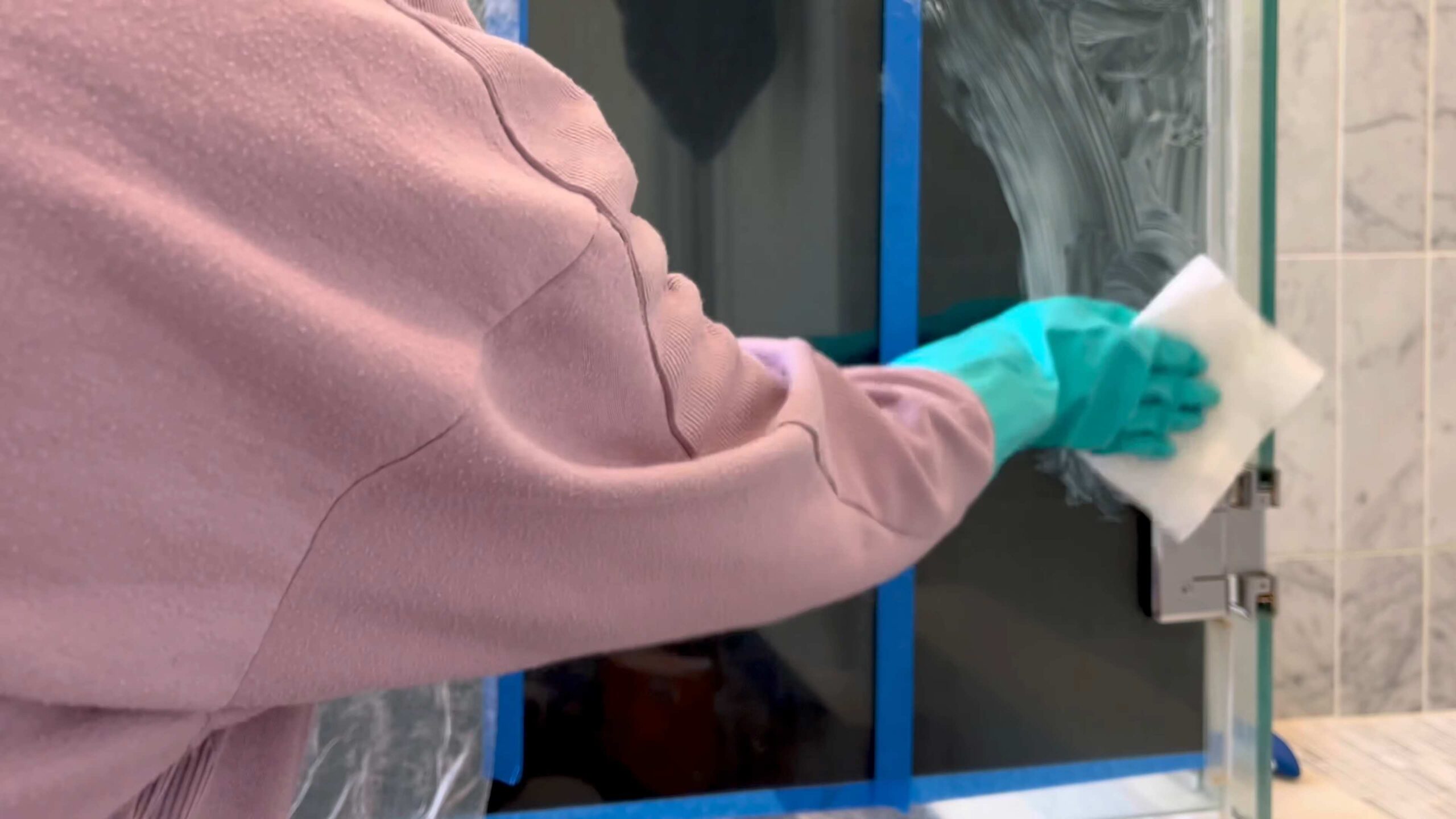
Conclusion
Tired of battling the relentless effects of hard water on your hair, skin, and home? You’ve likely tried countless products promising relief, only to be met with disappointment and a lingering feeling of frustration. But what if the solution was already sitting in your pantry? Baking soda, that humble kitchen staple, offers a surprisingly effective and affordable way to combat the challenges posed by hard water.
This isn’t just another fleeting trend; it’s a practical, time-tested method that can make a noticeable difference in your daily life. From softer, more manageable hair to cleaner, brighter laundry, the benefits of using baking soda to soften hard water are undeniable. The build-up of minerals like calcium and magnesium in hard water can leave a residue on your hair, making it feel dull, lifeless, and difficult to style. Similarly, hard water can react with soaps and detergents, creating a scum that clings to fabrics and surfaces, leaving them looking dingy and feeling rough.
By incorporating baking soda into your routine, you’re essentially neutralizing the excess minerals that cause these problems. It’s a simple, natural way to restore balance and achieve the results you’ve been searching for. Think of it as a gentle yet powerful antidote to the harsh effects of hard water.
But the beauty of this DIY trick lies not only in its effectiveness but also in its versatility. Feel free to experiment with different amounts of baking soda to find the perfect balance for your specific water hardness and needs. For instance, if you have extremely hard water, you might need to increase the amount of baking soda slightly. Conversely, if your water is only moderately hard, you can start with a smaller amount and adjust as needed.
Consider these variations to further enhance the benefits:
* **For Hair:** Add a few drops of essential oils like lavender or rosemary to your baking soda rinse for added fragrance and therapeutic benefits. These oils can help soothe the scalp and promote healthy hair growth.
* **For Laundry:** Combine baking soda with your regular laundry detergent for a boost in cleaning power. You can also add a cup of white vinegar to the rinse cycle for extra softening and brightening.
* **For Cleaning:** Create a paste of baking soda and water to scrub away stubborn hard water stains on sinks, tubs, and showers. The gentle abrasive properties of baking soda will help lift away the grime without scratching the surfaces.
The possibilities are endless! The key is to start with a small amount and gradually increase it until you achieve the desired results. Remember to always test a small area first to ensure that the baking soda doesn’t damage the surface you’re cleaning.
We wholeheartedly encourage you to give this simple yet transformative DIY trick a try. You might be surprised at how much of a difference it can make in your life. Say goodbye to dull hair, dingy laundry, and stubborn stains, and hello to a world of softness, brightness, and cleanliness.
Once you’ve experienced the magic of using **baking soda for hard water**, we’d love to hear about your results! Share your experiences, tips, and variations in the comments below. Your insights could help others discover the benefits of this amazing natural remedy. Let’s work together to unlock the full potential of baking soda and create a community of happy, healthy homes.
Frequently Asked Questions (FAQs)
What exactly does baking soda do to hard water?
Baking soda, chemically known as sodium bicarbonate, acts as a water softener by increasing the water’s alkalinity. This increase in alkalinity helps to neutralize the calcium and magnesium ions that cause water hardness. While it doesn’t remove these minerals entirely, it reduces their ability to bind with soaps and detergents, preventing the formation of scum and residue. This results in cleaner, softer water that’s gentler on your hair, skin, and laundry. It’s important to note that baking soda is a mild water softener and may not be as effective as commercial water softening systems for extremely hard water. However, it’s a cost-effective and readily available option for those looking to improve the quality of their water.
How much baking soda should I use for laundry?
The amount of baking soda you should use for laundry depends on the hardness of your water and the size of your load. As a general guideline, start with ½ cup of baking soda per load of laundry. Add it directly to the washing machine drum along with your regular laundry detergent. For heavily soiled clothes or extremely hard water, you can increase the amount to ¾ cup or even 1 cup. However, it’s always best to start with a smaller amount and adjust as needed to avoid any potential issues. Overusing baking soda can sometimes leave a white residue on clothes, so it’s important to find the right balance.
Is baking soda safe for all types of washing machines?
Yes, baking soda is generally safe for all types of washing machines, including high-efficiency (HE) machines. Unlike some harsh chemicals, baking soda is a mild and non-corrosive substance that won’t damage the internal components of your washing machine. In fact, it can even help to clean and deodorize your machine, preventing the build-up of mold and mildew. However, it’s always a good idea to consult your washing machine’s manual for specific recommendations and precautions. If you’re unsure about using baking soda in your machine, you can always test it in a small, inconspicuous area first.
Can I use baking soda to soften water for bathing?
Yes, you can use baking soda to soften water for bathing. Add about ½ cup of baking soda to your bathwater as the tub is filling. The baking soda will help to neutralize the minerals in the hard water, making it feel softer and more gentle on your skin. This can be especially beneficial for people with sensitive skin or conditions like eczema. You can also add a few drops of essential oils like lavender or chamomile to your bathwater for added relaxation and therapeutic benefits. Remember to stir the water well to ensure that the baking soda is fully dissolved before getting in.
Are there any risks associated with using baking soda to soften hard water?
While baking soda is generally safe to use, there are a few potential risks to be aware of. Overusing baking soda can sometimes leave a white residue on clothes or surfaces. It can also cause a slight increase in the pH of the water, which may not be suitable for certain plants or aquatic life. In rare cases, some people may experience skin irritation or allergic reactions to baking soda. If you have sensitive skin, it’s always a good idea to test a small area first before using baking soda extensively. If you experience any adverse reactions, discontinue use immediately.
How does using baking soda compare to a traditional water softener?
Baking soda offers a simple and affordable way to mitigate some of the effects of hard water, but it’s not a direct replacement for a traditional water softener. Traditional water softeners use a process called ion exchange to remove calcium and magnesium ions from the water, replacing them with sodium ions. This results in truly soft water that’s free of the minerals that cause hardness. Baking soda, on the other hand, doesn’t remove these minerals; it simply neutralizes them, preventing them from binding with soaps and detergents. While baking soda can improve the quality of your water, it won’t provide the same level of softening as a traditional water softener. However, it’s a great option for those who are looking for a cost-effective and natural way to address the challenges of hard water.
Can I use baking powder instead of baking soda?
No, you should not use baking powder instead of baking soda for softening hard water. Baking soda is pure sodium bicarbonate, while baking powder is a mixture of baking soda and an acid, such as cream of tartar. The acid in baking powder will react with the baking soda, neutralizing its ability to soften water. Using baking powder will not provide the same benefits as using baking soda and may even have the opposite effect. Always make sure to use pure baking soda when attempting to soften hard water.
How often should I use baking soda for laundry or bathing?
You can use baking soda for laundry or bathing as often as you like. There are no known limitations to how frequently you can incorporate baking soda into your routine. For laundry, you can add it to every load to help boost the cleaning power of your detergent and prevent the build-up of scum and residue. For bathing, you can add it to every bath to soften the water and soothe your skin. However, it’s always a good idea to monitor your skin and clothes for any signs of irritation or residue and adjust your usage accordingly.
Where can I buy baking soda?
Baking soda is readily available at most grocery stores, pharmacies, and discount retailers. It’s typically located in the baking aisle alongside other baking ingredients like flour, sugar, and baking powder. You can also purchase baking soda online from various retailers. Baking soda is a very affordable product, so you shouldn’t have any trouble finding it at a reasonable price. Look for brands that offer pure baking soda without any added ingredients or fragrances.
Will using baking soda affect the taste of my drinking water?
Using baking soda in your laundry or bathwater will not affect the taste of your drinking water. Baking soda is only added to the water used for these specific purposes and does not come into contact with your drinking water supply. However, if you are concerned about the taste of your drinking water, you can consider using a water filter or purifier to remove any impurities or minerals that may be affecting the taste.


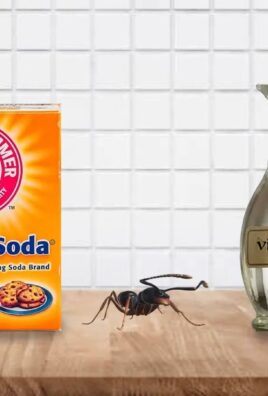
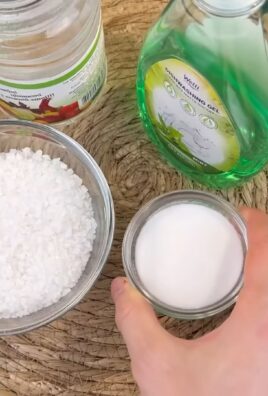
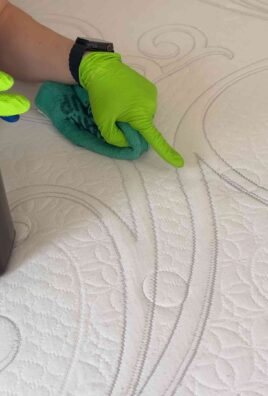
Leave a Comment